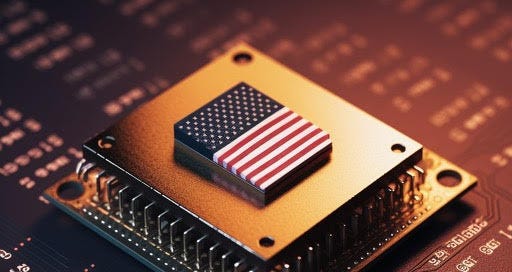The US-China Promethean War Escalates
The technological rift between Beijing and Washington will widen as tensions continue to escalate.
The US is considering slapping additional curbs on the cross-border sales of AI-interfacing semiconductors to its hegemonic rival, China. This comes on top of the restrictions Washington imposed in October of 2022. According to the Bureau of Industry and Security, the intention of the export controls was to “protect U.S. national security and foreign policy interests” and will “restrict the People’s Republic of China’s (PRC’s) ability to both purchase and manufacture certain high-end chips used in military applications”.
The latest measures will be implemented as soon as July. Shortly after the WSJ reported the story, shares of AMD and Nvidia fell. This comes as no surprise: approximately 20% of Nvidia’s revenue in 2022 came from China (including Hong Kong).
Source: Statista
Even though the company has offered the A800 chip to meet export controls, the latest measures would even ban the sale of this integrated circuit “without a special export license”.
The White House’s approach has been described as creating a “high fence” around a “small yard” of hegemon-defining technologies that are capable of being used by the People’s Liberation Army. The result has been a kind of “tech-for-tat” exchange: in response, Beijing has a few weeks ago banned the use of chips from Micron to be used in China’s infrastructure projects.
This is an extension of what I call the “Promethean War” between the US and China.
For a longer-form, deeper analysis of this rivalrous trend, see the previous post.
Looking ahead, the latest round of export restrictions will also very likely be also met with retaliatory measures by China. Despite the recent meeting between Secretary of State Antony Blinken and President Xi Jinping and productive discussions which ensued, relations are almost certain to continue deteriorating as both countries engage in their power struggle. This is the new era of globalization: the prioritization of domestic security over hyper-integrated efficiency.




